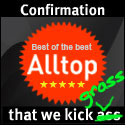The lifeblood of a successful soccer tournament is the army of volunteers who run the concession stand, sell the sponsorship ads, stand duty as field marshals, sell t-shirts, direct the parking and generally make sure your guest teams feel welcome and cared-for. But, how many of these volunteers are the same people, doing the same jobs year after year?
If your soccer tournament is like most, the same folks are doing the same jobs every year. On one hand, that is good because you have consistency. On the other, it is bad because there is no new talent to take over these critical jobs if the veterans were to leave.
I read Chris Brogan’s blog regularly about social media. For the most part, he is considered an expert in social media technologies such as Twitter, blogging, Facebook and the like. But I don’t think he is an expert on human behavior. Yesterday, he posted a rant about people using robots to reply to a new Twitter follow. There was (and still is) some discussion going on about his opinion on using robots, but I think Jeff Crites’s comment (#182) sums up the issue most closely aligned with soccer tournament would-be volunteers.
Most volunteers just want to help out and have some fun. Having been involved in soccer clubs for a number of year, both in the inner circles and on the outside, there are mainly two reasons people do not volunteer, regardless of the excuse they may use.
1. They are afraid that if they open their time to one or two things, the tournament will take advantage of their time and inundate them with responsibilities. So, it is easier to say no and keep the door shut.
2. They do not feel accepted by the “inner circle” of folks who already run the show. This is perhaps the most common reason.
A soccer tournament, like Twitter, is a scary place. There is a lot going on and a lot of folks who are experts at making it happen. They know all the rules — written and unwritten — and they make it all look easy. They are intimidating to new folks. And — like the Twitter community — the veterans have little patience with anyone who is new coming in and shaking things up. (If this does not describe your soccer tournament, consider yourself very, very lucky. Be honest with yourself; this is all part of that human condition we’re cursed with.)
New volunteers do threaten the status quo. They threaten the existing “power circles” the veterans have built. And that is a good thing because they also bring in new blood, new energy, and a different perspective. If there is no change, there is no growth.
Sure, the veterans will rant about these “new guys coming in and wanting to change everything,” but experienced, seasoned leaders will do it in private and as a release of their own fears of becoming irrelevant and obsolete, not as a rant against new blood who may not quite understand the rules but have good intentions. There may be a few new folks who step up to volunteer for the wrong reasons, but for the most part, they will be found out quickly and either corrected or asked to leave.
Our advice: Running a soccer tournament is more about leading people than it is about finding teams and scheduling games. Stop and think about how you felt the very first day you volunteered. Think about how scary it was being among all those people who were so sure of how to do things. Did you feel comfortable? How long did it take you to become the expert you are now? Did anyone take you aside and show you the ropes?
As a tournament director, identify those areas in your organization that have built walls to new volunteers. Actively seek to tear them down. And, if you have built a wall around yourself, start tearing that down. Pair new volunteers with those expert veterans who are open to change. Establish a new volunteer system that encourages change.
And try the new ideas suggested by new volunteers, but make them responsible for executing their own ideas. If they work, you’re ahead of a lot of soccer tournaments who are doing the same-ol’, same-ol’ every year. And, if they don’t, then they don’t. Don’t make a big fuss, don’t point fingers, but do encourage change, personal responsibility and innovation. If other volunteers see that you rant on unsuccessful ideas, they will be less apt to propose them and your tournament will not grow.
And never, ever use the phrase “We tried that once and it didn’t work.” If a new volunteer is willing to put in time and effort on an idea you tried a few years ago, perhaps times have changed and it will work this time.
Whatever you do, never publicly rant against new people who are enthusiastic and bright-eyed, even if they get stuff wrong and tick you off with their energy and excitement. It will make your soccer tournament look stodgy and you will scare off entire generations of potential volunteers. And your tournament will stagnate as your current experts get older and more resistant to change.
Make this year the year you resolve to try new things and break the status quo. In a down economy, the worst product to be selling is a commodity that anyone can get anywhere. Resolve to be different, to be special. Resolve that new people with new ideas will help you get there.
Meet us in St. Louis for the NSCAA. Jan 14-17, 2009
We’re in booth 1735 and we won’t even try to sell you anything, so you can stay and chat as long as you want. Really. And, if you want to make a podcast promoting your soccer tournament, Back of the Net will help you with that. You don’t even need to be a TourneyCentral tournament.


